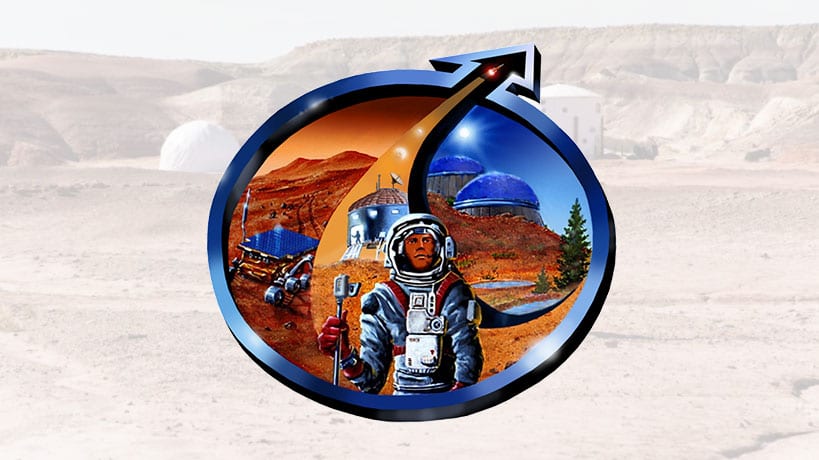
MDRS Crew 195 Final Mission Report
Commander Dana Levin 25.05.18
The latest iteration of our Martian Medical Analogue Research Simulation course went extremely well. Our crew seemed to enjoy the  simulations and clearly learned a lot about aerospace medicine, the Martian environment and operational procedures throughout the course. We continue to be grateful to the Mars Society for the opportunity to use this facility and all the resources it offers in our educational efforts.
simulations and clearly learned a lot about aerospace medicine, the Martian environment and operational procedures throughout the course. We continue to be grateful to the Mars Society for the opportunity to use this facility and all the resources it offers in our educational efforts.
The major challenged we encountered were difficulty with the power system which we were able to manage manually by switching to generator power when the charge dropped below a useful amount and the last minute notification of the news crew joining us for filming. The news crew was very much a surprise and we would have appreciated a heads up about their arrival so we could prepare and perhaps plan around them but in the end it turned out well and I believe their footage will portray the MDRS and our crew in a positive light.
As has been typical of our missions the daily EVA scenarios were handled safely and effectively and the emergency simulations were coupled with debriefs to ensure effective transfer of each learning objective. The feedback received from the crew both informally and through our own feedback process indicated a high level of enjoyment, respect for the facility, the course, and the challenges of a mission to Mars.
As we have now run the course several times, the didactic sessions and simulations have become much more standardized and efficient. The landscape and the difficulties of living in the habitat are well known to us so there were few surprises and our instructors understand how to manage the basic maintenance, reporting, and food supplies.
This was also the second year we’ve incorporated research activities into our educational plan. The crew was very receptive to this as were outside parties and we are looking forward to expanding this work in future missions. Our research is primarily focused on habitability, rapid iterative design, and feedback from task saturated personnel. We hope to present this research at future meetings and continue to solicit more projects that can benefit from our unique population of medical professionals.
Our projects for this year included an app based audio/video/text capable feedback system, a medical data architecture simulation for deep space flight, and a scenario based rapid iterative design proof of concept that we hope to develop further in the future.
As always the realism of the EVA landscape is the most impressive feature of the MDRS site. The habitat facilities, EVA suits, and food supplies are well suited to the experience, however we have noticed a need for maintenance in both the habitat and space suits.
We were unable to utilize the Greenhab or the RAM module as we had not built our simulation to incorporate them but these facilities were used informally by the crew and have given us ideas for future simulations which we hope to incorporate into future iterations of our course. Thank you for the continued opportunity to work with you on this project, we look forward to our continued collaboration.